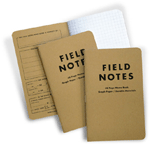by Margaret Atwood
Nan A. Talese
Buy at Powell’s »March 24, 2010
Hilary Mantel
Nicholson Baker
Judged by
When I got my picks for this round, I thought, “Oh, man, this is not fair in the least.” First, I am a huge sucker for historical fiction set in 16th-century western Europe. I know, but when other girls were reading V.C. Andrews and swooning over incestuous romances in seventh grade, I was reading Jean Plaidy and freaking out about how life was all political maneuvering and religious wars. Second, I have a problem with poetry. More specifically, what “poetry” has meant to me since a high school teacher basically ruined it by making me take three single-spaced pages to deconstruct 10 lines of text using abstruse vocabulary that has zero application outside of one’s 12th grade Advanced Placement English class. After taking that test, I never wanted to read a single poem again. OK, I like Justin Chin, but in general, for 10 years I haven’t been able to look at a poem without thinking, “Ugh, time to analyze.” And I’ve read Baudelaire in French and Heine in German, you know? I’ve made efforts. Multilingual efforts. Still, this prejudice made the idea of The Anthologist—a book about a poet, writing a book about the history of poetry—frankly unpleasant. So unless Hilary Mantel went totally off-message and made Anne Boleyn out to be a crazy monster who deserved to be executed, I was going to have to vote Wolf Hall.
The thing is, once I started reading The Anthologist, I stopped feeling so certain. Sure, it is a small volume, but it is mighty. Maybe it resonates with me more because, like its protagonist, I’ve been sort of stumbling, lost, through my life lately. Generally I don’t find old white dudes relatable, but in Paul Chowder’s case I could get behind his particular craziness. He gets stuck, you see, in this place where he screws up and screws up, no matter what remedy he tries.
 Keep your lists of books, quotes, and sketches in Field Notes Memo Books. Check our exclusive offer for ToB readers.
Keep your lists of books, quotes, and sketches in Field Notes Memo Books. Check our exclusive offer for ToB readers.Hilary Mantel’s Thomas Cromwell, on the other hand, is basically an übermensch. We get this massive story of a massive man’s massive life, in which our hero—however flawed he admits to being—seemingly can’t fail, which shouldn’t be irritating because it’s a historical novel and its events already happened, you know? But I kept thinking, “Does he have to be so talented at everything and be such a good and noble man, too?” His biography is fascinating enough without having to lionize him. Yes, I know he loses his beloved wife, I know (spoiler for another novel!) he ends up beheaded for treason by the end of the decade, I know he worked very hard to achieve what he did. I just get royally tired of reading about a super-man doing super-well at super-things.
Still, however much I liked Paul Chowder and his humility and his failures, and however much I liked Nicholson Baker’s forcibly (though charmingly) reminding me that poetry is more than counting syllables and pretending that “there’s so much freedom within the structure of a villanelle” or whatever, I liked Wolf Hall better. It’s a big, awesome book with a big, awesome plot, and even though its hero isn’t my favorite character, everything else about it is pretty fantastic. So, the winner for the win.
Meave Gallagher is a contributing editor at TMN and a founding editor of Vegansaurus. She lives in California. Known connections to this year’s contenders: Despite Margaret Atwood being one of my no. 1 hero(in)es, I have no real-life actual conflicts of interest with any of these authors.